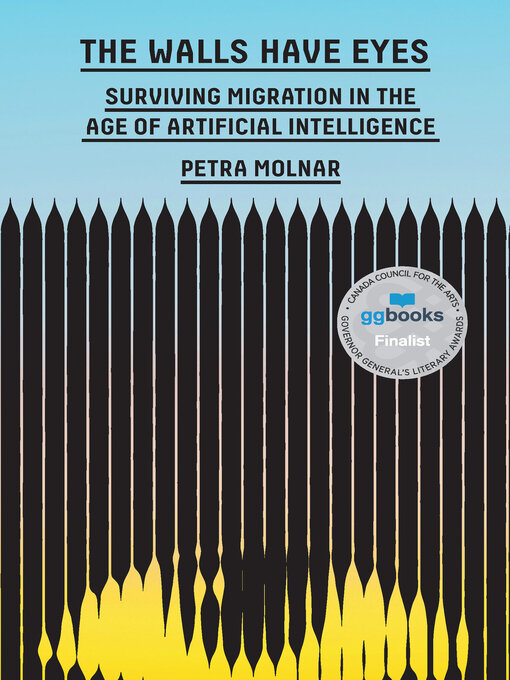A chilling exposé of the inhumane and lucrative sharpening of borders around the globe through experimental surveillance technology
Finalist for the Governor General's Literary Award for Nonfiction
In 2022, the U.S. Department of Homeland Security announced it was training "robot dogs" to help secure the U.S.-Mexico border against migrants. Four-legged machines equipped with cameras and sensors would join a network of drones and automated surveillance towers—nicknamed the "smart wall." This is part of a worldwide trend: as more people are displaced by war, economic instability, and a warming planet, more countries are turning to AI-driven technology to "manage" the influx.
Based on years of researching borderlands across the world, lawyer and anthropologist Petra Molnar's The Walls Have Eyes is a truly global story—a dystopian vision turned reality, where your body is your passport and matters of life and death are determined by algorithm. Examining how technology is being deployed by governments on the world's most vulnerable with little regulation, Molnar also shows us how borders are now big business, with defense contractors and tech start-ups alike scrambling to capture this highly profitable market.
With a foreword by former UN Special Rapporteur E. Tendayi Achiume, The Walls Have Eyes reveals the profound human stakes of the sharpening of borders around the globe, foregrounding the stories of people on the move and the daring forms of resistance that have emerged against the hubris and cruelty of those seeking to use technology to turn human beings into problems to be solved.


